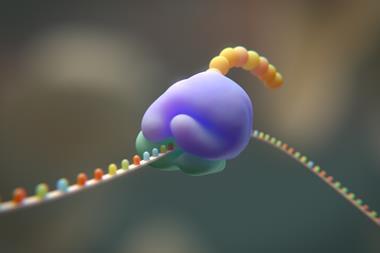Leading a lab through pandemic-induced uncertainty
PhD training teaches you to adapt to unknowns. Uncertainties about finishing your project within the deadline. Delays in receiving grants. Doubts about publishing a paper after it has been rejected or gone through multiple rounds of reviews. Nevertheless, the uncertainties caused by Covid-19 were on a different level, typified by fear and anxiety. Fear can be mitigated by understanding the unknowns. Anxieties often stem from not doing things that we care about – whether that’s doing research or supporting our mentees.
I started my lab in 2016, in a teaching-heavy university where we are passionate about research and try to run our lab on a par with those at research-focused institutes. Nevertheless, it has always been extremely challenging to find time to solely devote to research and mentoring the four students who currently make up my group. With the ongoing pandemic, these challenges became much worse.
As we were completing some crucial experiments, the pandemic lockdown halted our work completely. In a state of confusion and reeling under uncertainty, our priority was our safety and wellbeing. I asked my trainees to back up their data, and then unplugged and boxed up our lab equipment. We headed home with no accurate date for when we could safely return to our lab.
These circumstances have created significant headwinds to our research and clouded our thinking. I, being the poster child of the lab, needed to be empathetic to these unforeseen problems. My thoughts often turned to my mentees, as I tried to understand how they would take the whole pandemic situation. With empathy, we can mitigate the uncertainties caused in these Covid times.
Leading from the front
As leaders of labs, we should go beyond our usual duties and muster different skill sets to support our mentees through this challenging period. I devoted a lot of time to creating a system that would help my group to work from home. This was important for me to show that not all is lost in this crisis.
We resumed as many of our research activities as we could online. We wrote reviews, finished an overdue paper, and I urged my mentees to participate in online conferences. I enrolled in many webinars aligned with our research work. I would report back to my mentees about what I learned so that they, in effect, vicariously attended the webinar. In this way, I made sure that we did not lose track of our work, and that we did not feel isolated as a research group. We held the bi-weekly group meeting online, and used virtual meetings to discuss new papers or exciting new data.
Like any research lab, we had many bad days where our most important experiment did not click with our hypothesis, analysis of the data did not work out as predicted, grants did not get renewed, and the paper got rejected. But the idea I have always tried to inculcate in mentees is to focus on the learning process and enjoy the journey. We have certainly learned a lot in the last year.
Pandemic pressure
The pandemic has taken a huge toll on our mental and physical well-being. As a community, we need to brace ourselves for considerable academic loss – but we can take a few steps to reduce that loss. As a start, we should recalibrate our expectations and make sure we prioritise empathy. Us mentors have a moral responsibility to really look after our mentees. Caring for and supporting our colleagues does not make us less able to do good research.
But as much we rally around others, we also need unwavering support to endure these uncertain times. As the pandemic abates, universities and funding agencies need to look again at the situation. It will be a long time before research can fully get back to normal. Early career researchers and our mentees need more support, such as extensions on thesis submission deadlines and increased fellowship terms.
Back to normal?
We have now started to prepare for our lab activities to resume. In our online gatherings we have discussed buying new equipment and basic lab consumables. Personally, lockdown has given me enough downtime to rethink my research direction. To this end, I have already written a project proposal and am ready to test a few hypotheses with my next group of mentees, who joined our research group last month with renewed hope and new energy.
Whatever difficulties are still to come, I hope that we do not lose hope. This crisis has created an indelible mark in our lives. Still, when I reach the end of my career, I believe I will be much prouder of navigating my lab through these uncertain Covid times than I will be of any grants, awards, papers or other academic laurels that I might achieve.












No comments yet